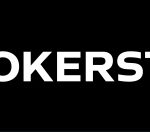As of mid-2025, Norway’s authorities have stepped up their enforcement against unlicensed gambling operators through an expanding list of DNS blocks.
Over 20 international betting and casino sites have been restricted, a move aimed at tightening the grip of the country’s state-run gambling monopoly. But with national elections looming later this year, political winds may be shifting—and the future of gambling regulation in Norway could soon take a very different turn.
Norway remains one of the few countries in Europe still clinging to a state monopoly on gambling. Only Norsk Tipping and Norsk Rikstoto are legally allowed to operate, with all other betting sites considered illegal under national law. This centralized approach has come under growing criticism for being out of step with European norms, where most countries have adopted regulated licensing models allowing private operators to function under government oversight.
In response to growing usage of international platforms, the Norwegian Gambling Authority began enforcing DNS blocking in January 2024. This allows authorities to restrict access to certain domains at the internet service provider (ISP) level—essentially cutting off Norwegian users from unlicensed sites.
The latest DNS block list includes some of the most widely used and recognizable brands among Norwegian players:
Government DNS-Blocked Sites:
- 20BET
- 22BET
- Casino Days
- Casumo
- iBet
- Lilibet
- Lucky Spins
- Qbet
- Wazamba
Meanwhile, Telenor, Norway’s state-owned mobile and broadband provider, has gone a step further by blocking an additional 12 platforms from its network (information provided by Betsjekk.com:
- Sportaza
- Kingmaker
- Bankonbet
- RTBet
- Betinia
- Spinanga
- Playzilla
- Excitewin
- Fezbet
- Campobet
- Librabet
- Wazamba
In total, at least 21 unique brands have been affected, with some operators appearing on both lists. This layered approach marks the most aggressive enforcement effort seen in Norway to date.
However, the political landscape may soon shift. With Norway’s parliamentary elections scheduled for autumn 2025, gambling policy has surfaced as a topic of debate. Several opposition parties have publicly questioned the effectiveness and fairness of the monopoly model, advocating instead for a licensing system similar to Sweden, Denmark, or the Netherlands.
Parties on the center-right and liberal side of the spectrum have proposed frameworks that would open the market to international operators—provided they meet strict regulatory requirements, pay taxes locally, and contribute to responsible gambling programs. Advocates argue that this approach would not only generate revenue but also provide better consumer protections than the current grey-market reality.
If the upcoming elections produce a new coalition government open to reform, Norway could see its first steps toward a competitive and regulated gambling environment—a significant change for both players and operators.
For now, the state continues to expand its blocking efforts, but the effectiveness is debatable. Players who are determined to access blocked sites often turn to VPNs, mirror domains, or cryptocurrency payment solutions. Many international operators continue marketing aggressively to Norwegian users despite restrictions, and some have even enhanced their services and Norwegian-language support in response to the ban.
The system may be holding for now, but pressure from users, operators, and possibly voters is growing. If post-election negotiations include regulatory reform, the days of Norway’s monopoly may be numbered.








